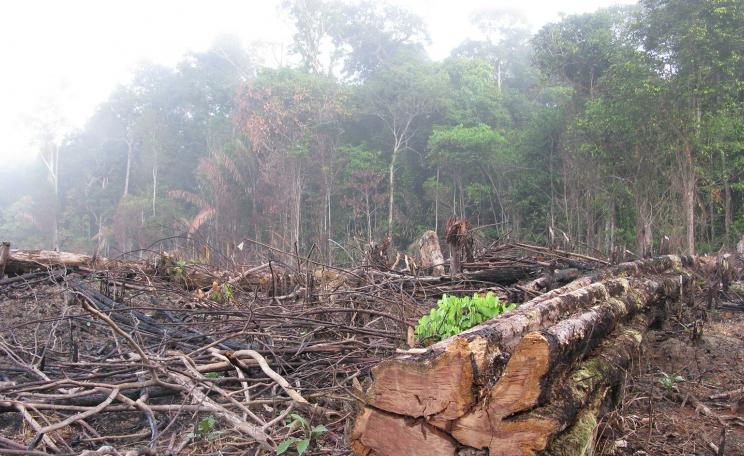Industrial fishing operations have no place in our protected areas.
Industrial "supertrawlers" have hugely increased the amount of time spent fishing in the UK's protected areas of sea this year, campaigners have warned.
An investigation by Greenpeace suggests the large, intensive fishing vessels spent 5,590 hours fishing in marine protected areas in UK waters in the first six months of 2020.
That is almost double the 2,963 hours supertrawlers spent fishing in the conservation zones, which are designated to protect wildlife and habitats, in the whole of 2019, the analysis suggests.
Intensity
This year, the industrial fishing vessels, none of which are UK-owned, have been recorded in 19 marine protected areas, while last year they were active in 39 such areas of the sea.
Greenpeace is calling for a ban on supertrawlers, which are more than 100 metres long and capable of catching and carrying thousands of tonnes of fish, from marine protected areas.
The move will be possible once the UK leaves the EU-wide system for regulating fisheries, the Common Fisheries Policy, the environmental group said.
And it will be a first step towards designating a network of highly protected marine areas in which all damaging activities are banned and which should cover 30 percent of the seas to protect marine wildlife, Greenpeace said.
Chris Thorne, an oceans campaigner at Greenpeace UK, said: "Our Government cannot continue to allow supertrawlers to fish with ever-increasing intensity in parts of our waters that are supposed to be protected.
Fishing
"It must step in and put a stop to industrial supertrawler operations within our offshore marine protected areas, something which will be possible after Britain leaves the Common Fisheries Policy.
"Industrial fishing operations have no place in our protected areas.
"At least 30 percent of the UK's waters should be off limits to all industrial fishing activity in a network of fully or highly protected marine areas.
"A good start towards achieving this would be to ban supertrawlers from fishing in our protected areas for thousands of hours every year."
Greenpeace used automatic identification system (AIS) location and movement data from Lloyd's List Maritime Intelligence for all trawlers over 100 metres in UK waters to make what the group said was a "conservative" assessment of how long they spent fishing the protected areas.
Protection
Polling suggests high levels of public support for a ban on supertrawlers in UK marine protected areas, the campaigners said, while more than 50 MPs have signed a letter urging the Environment Secretary to make such a move.
A Greenpeace petition calling for a ban has already gathered more than 214,000 signatures.
Shadow environment secretary Luke Pollard said: "The Government needs to step up to properly protect the most sensitive areas of British waters from this industrial scale plunder which is destroying precious biodiversity.
"Labour wants to prevent supertrawlers fishing in UK protected areas. And we're campaigning for more jobs in our fishing communities, by pushing for more of the fish caught in British waters to be landed in UK ports."
A spokesperson for the Environment Department (Defra) said: "The UK is a global leader in the fight to protect our seas with our 'Blue Belt' of protected waters nearly twice the size of England.
"The Common Fisheries Policy currently restricts our ability to implement tougher protection, but leaving the EU and taking back control of our waters as an independent coastal state means we can introduce stronger measures."
This Author
Emily Beament is the PA environment correspondent.







